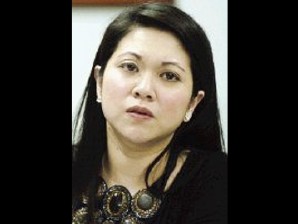Malacañang on Saturday vouched for the “integrity” of the Bangko Sentral ng Pilipinas (BSP), a day after Senate President Juan Ponce Enrile blasted the BSP for supposedly not bothering to investigate how a photocopy of Chief Justice Renato Corona’s signature cards from Philippine Savings Bank (PSBank) ended up in the hands of the prosecutors.
A Palace spokesperson dismissed allegations that the BSP was the source of confidential bank records being used by House prosecutors to pin down Corona on charges of unexplained wealth.
“At this point, these are just speculations and the investigation (into the document leakage) is ongoing and we know that the BSP, being the regulator of banking institutions, will not allow these things to happen,” Undersecretary Abigail Valte, President Benigno Aquino III’s deputy spokesperson, said Saturday.
Valte said officials of BSP and the Anti-Money Laundering Council had submitted themselves to the investigation being conducted by the Senate.
“We hold the BSP in high regard because we know (its members) are doing their job,” Valte said in a news briefing aired over state-run radio dzRB.
No cover-up
“There would be no cover-up. They have always held themselves to the highest degree of integrity,” she said, when asked to comment on the possibility that BSP examiner Jerry Leal would be made “a sacrificial lamb” should higher bank officials get dragged into the probe.
Some senators have expressed suspicions that Leal was the source of the documents following his appearance before a Senate inquiry into the alleged leak of Corona’s PSBank records. The BSP conducted an audit of the private bank in 2010.
The prosecution has accused Corona of not disclosing millions of pesos of bank deposits in his statement of assets, liabilities and net worth (SALN).
Valte also said the Aquino administration agrees in principle that the country’s bank secrecy laws and related laws should be reviewed, as suggested by the senators following the alleged leakage.
She said the administration was keen on addressing the difficulties stemming from certain provisions of the Foreign Currency Deposits Act (FCDA) on the confidentiality of such accounts.
“In reference to that particular amendment, President Aquino said we all agree because we can see the obstacles that have been caused,” Valte said.
Exceptions to the rule
The impeachment court earlier deferred to a Supreme Court ruling citing FCDA provisions and preventing Corona’s alleged dollar deposits from being discussed in his trial.
As to fears that relaxing the country’s banking laws could be abused by future administrations to get back at their political enemies, Valte said: “The general rule is that deposits may not be looked into except in certain instances, such as when there is a case in court, impeachment and other instances.” Norman Bordadora


